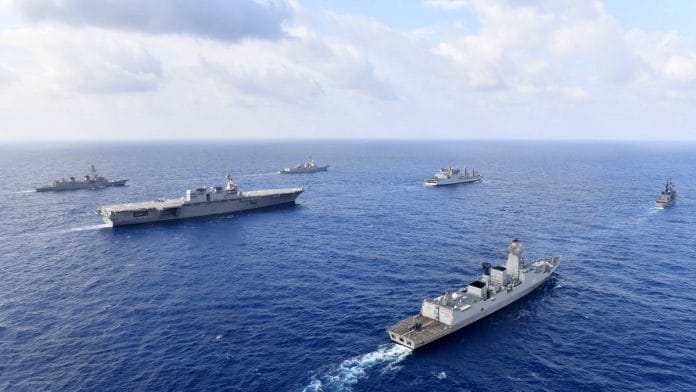New York/Washington: The U.S. and Australia sought to project unity against a more assertive China in the Indo-Pacific region, announcing some modest defense initiatives while pushing back against Beijing on issues from the Hong Kong national-security law to 5G technology.
Senior American and Australian officials, meeting over two days in Washington this week, agreed to work toward greater military cooperation and to establish a U.S.-funded, commercially operated military fuel reserve in the northern city of Darwin.
“This will ensure the alliance maintains its capability edge in a rapidly modernizing environment,” Australian Defense Minister Linda Reynolds said Tuesday, standing alongside U.S. Secretary of State Michael Pompeo, Defense Secretary Mark Esper and Australian Foreign Minister Marise Payne. “Further reducing barriers to industrial-base integration will also strengthen our inter-operability and also our shared resilience.”
Despite both the U.S. and Australia pushing back more aggressively against Chinese claims in the South China Sea, the two sides omitted mention of proposals to have Australia take a greater role in sending warships through the strategic waterway.
Relations between Canberra and Beijing, which have close economic ties, have grown increasingly frayed, with Australia leading international demands earlier this year for China to allow international investigators into Wuhan to probe the origins of Covid-19. China shot back by placing tariffs on Australia’s barley exports while halting some beef imports and threatening wider boycotts.
Australia has increasingly sought to unite with smaller countries in the region to counter China, while tightening its relations with Washington. It joined the U.S. last week in rejecting China’s expansive maritime claims in the South China Sea, calling them “inconsistent” with the 1982 United Nations Convention on the Law of the Sea.
After meetings on Tuesday in Washington, the two sides issued a statement saying they “recognized an interest in strengthening the mutual security and prosperity of the United States and Australia.” They vowed to collaborate on issues including next-generation hypersonic weapons, integrated air and missile defense, electronic and undersea warfare, space, cybersecurity and critical minerals.
The in-person visit was unusual, as the two countries both continue to combat the coronavirus pandemic. U.S. Defense Secretary Esper acknowledged the sacrifice the Australian officials made by trekking to Washington, saying he recognized they would have to go into self-quarantine for 14 days when they return home. –Bloomberg
Also read: Australia to keep working with US, China, like-minded countries like India: Defence Minister






